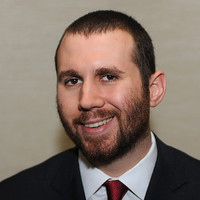When it comes to freedom of speech, Generation Z is like a chemistry student who aces the written test but flunks the lab experiment.
Students support First Amendment rights in theory but often oppose their exercise in practice, according to an annual Gallup survey of American undergraduates funded by the Knight Foundation.
For example, 81% of respondents agree that campuses should be a place where students are exposed to all types of speech, even if some may be offensive, but 78% believe colleges should provide safe spaces where students are insulated from uncomfortable dialogue. The wide overlap poses a confounding contradiction.
Almost three quarters of students polled said colleges shouldn't be able to censor political views, but 71% want to deputize administrators as fashion police and give them power to ban costumes that reinforce racial or ethnic stereotypes — think sombreros on Cinco de Mayo or Halloween hand-wringing over cultural appropriation.
Democrats feel more comfortable voicing dissenting opinions in class than students who identify themselves as Republicans or independents, the survey shows, and conservative coeds said they feel less able to express their views openly.
Campus speech controversies are nothing new, but in 2013, First Amendment advocates noticed a shift. Instead of provosts and deans cracking down, the students themselves were increasingly calling for censorship. An aversion to opposing views became medicalized, with undergrads reporting their peers for making them feel unsafe or triggering anxiety and stress disorders.
Greg Lukianoff and Jonathan Haidt explore this phenomenon in the 2018 bestseller "The Coddling of the American Mind: How Good Intentions and Bad Ideas Are Setting Up a Generation for Failure." It's a must-read for anyone concerned about the campus climate for political discussion.
Colleges cordoned off safe spaces, mobilized bias response teams and asked professors to preface classroom content with trigger warnings in an effort to shield students from discomfort. But psychologists have long known that avoidance increases anxiety while exposure can reduce it. Lukianoff and Haidt say a robust exchange of ideas — including those we find offensive — is necessary to make us resilient.
"What is new today is the premise that students are fragile," Haidt writes. "Even those who are not fragile themselves often believe that others are in danger and therefore need protection."
The prevailing sentiment, particularly at elite liberal arts colleges, holds that voicing conservative views on social issues like transgender rights and affirmative action is harmful to marginalized groups. Yet there's a convincing progressive case to be made for free expression.
Liberal students who opposed the Vietnam War spearheaded the Free Speech Movement at the University of California, Berkeley, bucking a ban on campus political activism to hold protest rallies and sit-ins in the mid-1960s. Mario Savio, a grad student regarded as one of the movement's key leaders, was an avowed socialist.
Comedian and liberal pundit Bill Maher blames President Donald Trump's election on a national backlash against political correctness. While he skewers the president from his perch as host of HBO's "Real Time," he also calls out the left's censorious impulses, correctly labeling the trend regressive rather than progressive.
For those who say free speech is merely a convenient excuse for far-right firebrands to target minorities with impunity, First Amendment lawyer Adam Goldstein offered a prescient warning.
"Here's some wisdom for everyone who wants to impose speech restrictions to defend disadvantaged people: you will come to realize, in the fullness of time, that rules are enforced by the powerful," Goldstein wrote on Twitter last year. "No matter how you rationalize it, you cannot benefit the oppressed by creating stronger tools of oppression. The safest thing you can do for marginalized populations is create a power structure with as little authority over them as possible."
It's both a moral miscalculation and a tactical error to cede free speech to conservatives. The right to think, write and speak without fear of punishment ought to be nonpartisan. The left must reclaim its legacy as a champion of expressive rights, evacuate the ideological safe spaces and rejoin the great American debate.
Corey Friedman is an opinion journalist who explores solutions to political conflicts from an independent perspective. Follow him on Twitter @coreywrites. To find out more about Corey Friedman and read features by other Creators writers and cartoonists, visit the Creators webpage at www.creators.com.
Photo credit: www_slon_pics at Pixabay






View Comments